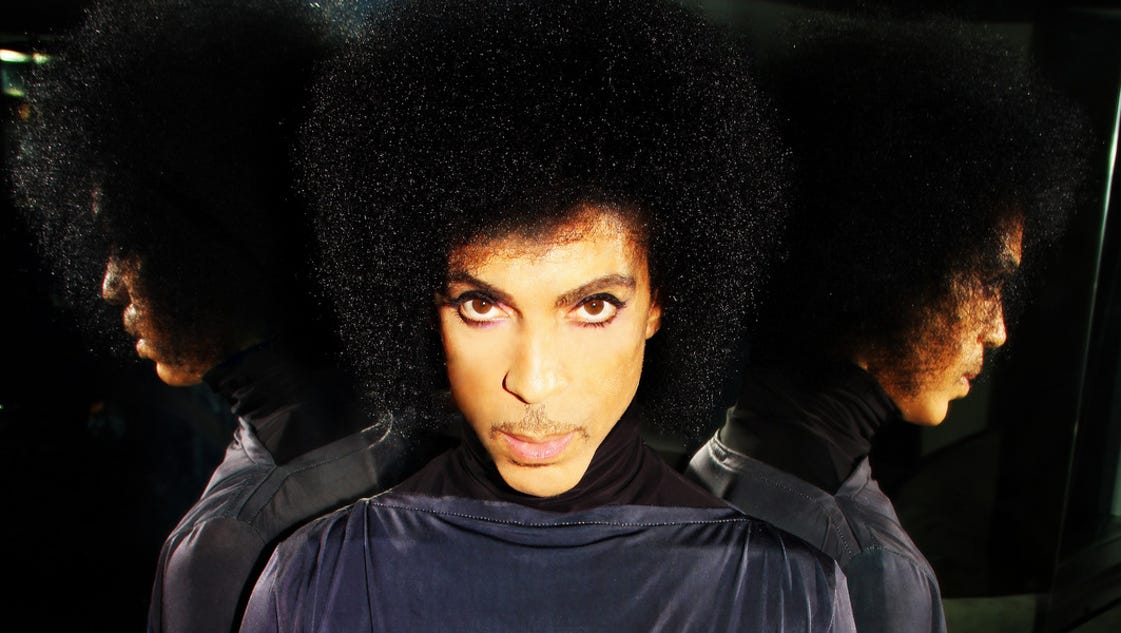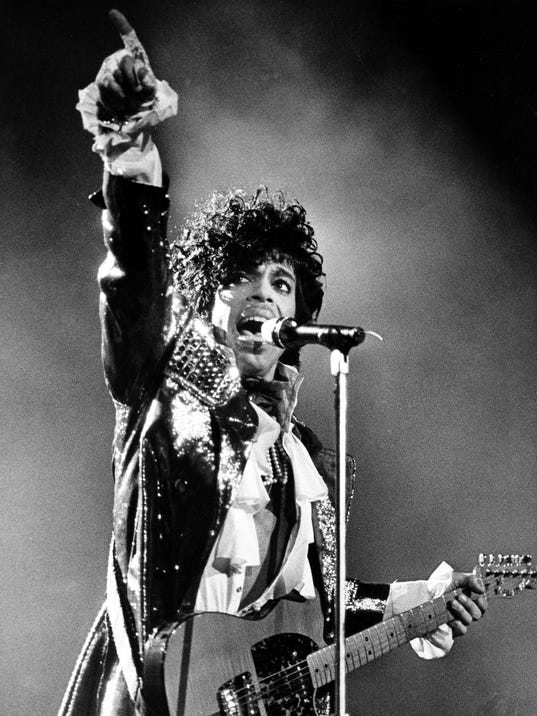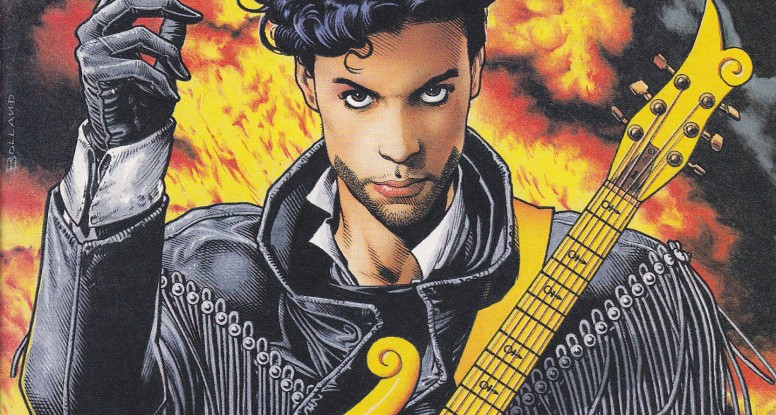Today, April 21st, is the one-year anniversary of Prince’s death and we’ll be sharing some of our reflections on the one-of-a-kind musical genius and dynamo. I wrote this piece below exactly a year ago today upon learning of his passing. The loss remains as profound today as it did upon hearing the news.
I mentally checked out earlier this afternoon when I heard the news that music icon Prince passed away. I’m still dumbfounded, sifting through an avalanche of emails, Facebook posts and texts trying to make sense of something I’d never considered: a world without Prince in it.
To say that my inner circle is profoundly sad would be an understatement. The Little Purple Fella mesmerized me back in 1982 with his delicious, mid-intercourse rant on “Lady Cab Driver”, when he accompanies some serious hip-thrusting with a hilarious, thought-provoking and wide-ranging diatribe that included one of my favorite lines ever in music.
Whenever I’m Uptown in Harlem, chilling with my twin cousins, we’ll invariably blurt out, in our own, unique honorary tribute to re-winding the song over and over again and singing it as loud as we could during our early teens: This is for why I wasnt born like my brother, handsome and tall!
Prince’s music was the soundtrack of my adolescence and his presence hovered just beneath everything else that influenced me in the ’80s, ’90s, 2000’s and beyond. The cat was beyond prolific, dropping at least one album per year between 1985 and 1992.

(Photo Credit: USA Today)
His sound encompassed strands of the only musicians and artists that could be considered his peers in terms of their musicianship and genius: Stevie Wonder, Michael Jackson and James Brown. There were also slivers of Little Richard, Sly and the Family Stone and other musical elements like Rock and Roll, Hip-Hop, Funk, R&B, Gospel and Country that came leaping out of his mesmerizing arrangements.
He transcended music in ways that very few have, from film to comedy to sports to politics and beyond. I literally became emotional last year, in the wake of the Freddie Gray murder, when Prince put on a benefit concert in a tattered city while donating a portion of the proceeds to various local youth groups.
He took the opportunity to release the song, “Baltimore”, where he asks, “Does anybody hear us pray, for Michael Brown or Freddie Gray?”, and “Are we gonna see another bloody day? We’re tired of the cryin’ and people dyin’, let’s take all the guns away.”
My colleague Sunny Cadwallader, a Shadow League contributor based in the Pacific Northwest, emailed me earlier to say:
“As someone who grew up in the ’80s when his fame was growing, Prince helped shake things up. Teenagers loved his music for dancing to, sure (boy did we ever). But, he challenged us (me) to look at things differently with his lyrics.
Whether it was about race, sex, relationships, music or whatever, what I realize now (because that’s what I try to do) is that he made you think. And he did it with attitude, coolness, charisma and sexiness (yeah, he was sexy!!! Little Nikki was my then best friend’s favorite song because…well…her name was Nikki.).
He explored music and lyrics in a way that reflected our own journeys as teenagers and young adults.
For me, he transcended race and, dare I say, gender. Looking back, he celebrated women – no, not just sexually – but seeing Wendy & Lisa up there playing guitar was empowering in a unique way. It’s like he was saying what I believed and still believe today, that no matter your gender, no matter who you are or where you are in this world, if you’re talented, you’ll be given the spotlight. You’ll be recognized. You’ll get your due.
He wasn’t afraid to succeed. He wasn’t afraid to fail. He wasn’t afraid to try.
Sometimes he could freak you out with some of the things he did, but that was part of his charm (to me as a teenager). He pushed the envelope…no, he said, FORGET THE ENVELOPE. THERE AIN’T NO ENVELOPE.”

(Photo Credit: USA Today)
Another talented Shadow League writer, Rhett Butler, sent me this note while our work day ground to a halt as we tried to collect ourselves:
“‘I was reluctant to let you come, says the man sitting in front of me, ‘until I heard that you’re planning to do a story about ownership.’
This was the first line of the cover story interview Prince did for Billboard Magazine in 2013 and it sums up my love for the man perfectly.
He notoriously did not allow reporters to record his voice or write down what he was saying as he said it. Prince allowed you to be in his presence and experience him as a shared dialogue, not a press opp.
When Prince felt that the music industry machine was taking advantage of its creators, he brazenly cut the cord, staging an 18-year standoff with Warner Brothers Records.
Under his Paisley Park label, he released music directly to fans over the Internet, and was the progenitor of the major independent movement that most artists in the Soul, R&B and Hip-Hop categories take for granted today.
As recently as 2014, he finally received ownership of his master recordings from Warner Brothers, the lifeblood of any creative artist who has amassed the level of popular success Princes previous works has.
Were talking Purple Rain, 1999, and Diamonds and Pearls here folks! Next to James Brown, the hard-work ethic and pathological ethos that went into his self-made mystique was legendary when he was alive and now will be immensely eulogized in his passing.
Rest in Power, Prince Rogers Nelson, a true iconoclast that touched us all by his beautiful defiance.”
(Photo Credit: USA Today)
Anyone who knows me knows how much I love Prince.
If you ride in my car, you’re prone to hear one of my many prolonged, loud outbursts of his lyrics that accompany his songs when they explode out of my sound system. With Prince, I rock out as if no one is listening.
Two years ago, I wrote something very personal about him and what the Purple Rain project meant in my life, in my specific journey. It was powerful, authoritative, robust and formidable. Its not just a movie or an album, its an experience, one that left an ineradicable, enduring impression on American popular culture that still resonates more than 30 years later.
No matter how many times we listen to our favorite Prince songs, we invariably feel something new, a quantifiable renewal of the spirit, a loving, searching moral inventory and a desire to free ourselves of our burdens through his wonderful healing force of music.
Prince changed the game. There’s no other way to say it.
But within the sadness of his passing, his work will always be a pulsating life force, one that will live on in love, pain, desire, compassion, and even a little bit (well, yeah, a lot) of sexy freaky-ness, until the end of time.


